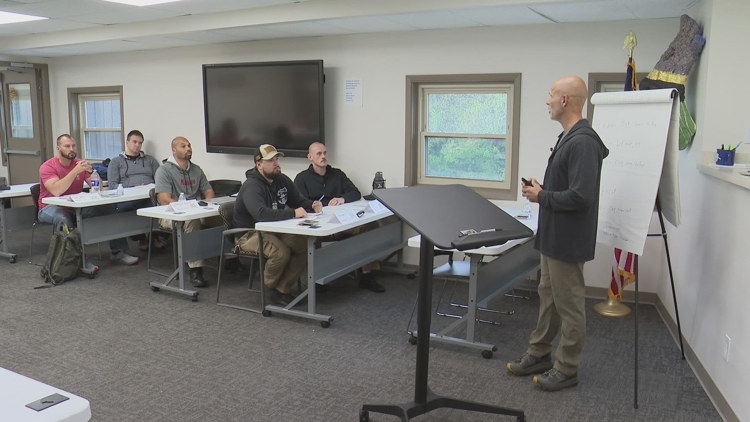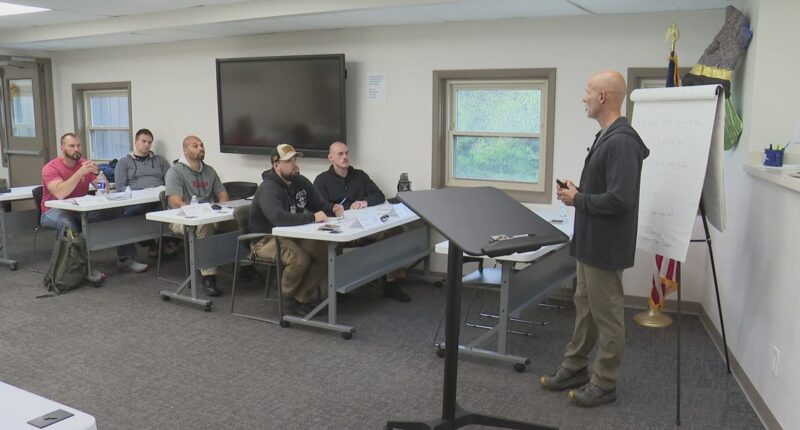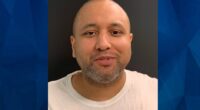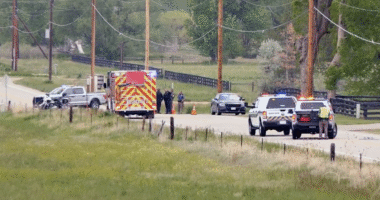
Recently, the University Circle Police Department organized de-escalation training sessions aimed at enhancing community policing for law enforcement agencies in Northeast Ohio.
In Cleveland, the University Circle Police Department embodies a “Servant’s Heart” ethos, evident not just from a phrase painted on a rock at the building’s entrance, but as a way of thinking.
During this initiative, officers from various law enforcement agencies in Northeast Ohio were welcomed by University Circle police to engage in de-escalation training crafted to enhance the quality of interactions between law enforcement and the communities they serve.
The training was led by Tony Wenger, a retired U.S. Army intelligence officer who travels the country teaching officers how to respond more effectively—and more safely—in high-stress situations.
“What else could it be?” Wenger asked. “Ask those five, that five-word question, ‘what else could it be?’”
Wenger says that approach helps officers rethink assumptions about a person’s behavior—an essential skill in today’s policing climate.
“A lot of times you’re gonna be deescalating and is the person angry? Is it anxiety? Is there stress?” he said. “Or is it something, some kind of mental illness or drug-related issue that’s affecting them?”
The first step, according to Wenger, is self-awareness.
“They’ve taken a personality test so they know what their personality generally is,” he said, “and then we teach them how to quickly identify what someone else’s personality may be and how to interact with different types of people.”
The officers didn’t just sit and listen—they practiced. Role-playing exercises were a central part of the experience. In one scenario, Wenger and retired Ohio State Trooper David Simpson acted out a tense traffic stop, simulating how quickly an encounter can escalate—or de-escalate—based on the officer’s response.
Simpson said those hands-on moments were powerful.
“The most I took out of this class was, safety,” Simpson said. “De-escalation to me is a big part of limiting some of the issues that we’ve seen on the news from the video, Facebook, Twitter. If officers or people in general learn to deescalate situations, we probably will have a whole lot less problems today.”
In Wenger’s view, the benefits are clear.
“Well, number one is it’s gonna reduce officer injury,” he said. “It’s gonna reduce injuries to the, the people they’re dealing with. It’s going to make everyone safer.”
Chief Wetzel said sharing University Circle’s “Servant’s Heart” culture is part of the broader goal—changing the relationship between police departments and the people they protect. In a statement, he said:
“Once officers have completed the training, they can then go back to their individual agencies and train their officers on de-escalation tactics. Having good verbal communication skills is critical in law enforcement today. Our tongues are one of our most powerful tools and when de-escalation is done well, it can be the difference between an arrest going without incident or one that involves violence from a suspect. It can be the difference between a situation resulting in a simple police report or one that gets litigated for years. Good de-escalation skills can save lives and help protect officers from injuries. Our agency works hard to build trust and develop positive relationships with those we serve. Hosting training of this nature shows our commitment to professional policing and customer service excellence.
De-escalation training should be mandatory training for every cop in the nation.”















